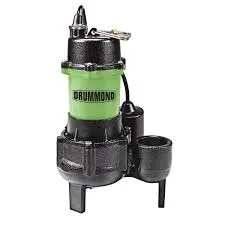English
- Afrikaans
- Albanian
- Amharic
- Arabic
- Armenian
- Azerbaijani
- Basque
- Belarusian
- Bengali
- Bosnian
- Bulgarian
- Catalan
- Cebuano
- Corsican
- Croatian
- Czech
- Danish
- Dutch
- English
- Esperanto
- Estonian
- Finnish
- French
- Frisian
- Galician
- Georgian
- German
- Greek
- Gujarati
- Haitian Creole
- hausa
- hawaiian
- Hebrew
- Hindi
- Miao
- Hungarian
- Icelandic
- igbo
- Indonesian
- irish
- Italian
- Japanese
- Javanese
- Kannada
- kazakh
- Khmer
- Rwandese
- Korean
- Kurdish
- Kyrgyz
- Lao
- Latin
- Latvian
- Lithuanian
- Luxembourgish
- Macedonian
- Malgashi
- Malay
- Malayalam
- Maltese
- Maori
- Marathi
- Mongolian
- Myanmar
- Nepali
- Norwegian
- Norwegian
- Occitan
- Pashto
- Persian
- Polish
- Portuguese
- Punjabi
- Romanian
- Russian
- Samoan
- Scottish Gaelic
- Serbian
- Sesotho
- Shona
- Sindhi
- Sinhala
- Slovak
- Slovenian
- Somali
- Spanish
- Sundanese
- Swahili
- Swedish
- Tagalog
- Tajik
- Tamil
- Tatar
- Telugu
- Thai
- Turkish
- Turkmen
- Ukrainian
- Urdu
- Uighur
- Uzbek
- Vietnamese
- Welsh
- Bantu
- Yiddish
- Yoruba
- Zulu
Telephone: +86 13120555503
Email: frank@cypump.com
Sep . 24, 2024 14:30 Back to list
Efficient Solutions for Chemical Pumping and Handling Systems
Chemical Handling Pumps Essential Equipment for Safety and Efficiency
In various industrial processes, the handling of chemicals is a critical operation that requires utmost precision and safety. Chemical handling pumps play an essential role in transferring, mixing, and managing hazardous and non-hazardous liquids across a wide range of applications, including manufacturing, pharmaceuticals, and wastewater treatment. The evolution of these pumps has significantly improved operational efficiency while minimizing risks associated with chemical handling.
The primary function of a chemical handling pump is to transfer fluids from one location to another. These pumps are specifically designed to handle corrosive, viscous, or reactive liquids that standard pumps cannot manage. Materials used in the construction of these pumps, such as stainless steel, polypropylene, and Teflon, are selected for their chemical resistance and durability. These features ensure that the pumps remain operational under harsh conditions without degrading or contaminating the fluids being handled.
One of the critical aspects of chemical handling pumps is their ability to maintain the integrity of the fluid being pumped. For example, diaphragm pumps, which utilize a flexible membrane to create fluid movement, are often preferred for handling toxic or corrosive chemicals. These pumps prevent leaks and spills, offering an added layer of safety to operations. Similarly, magnetic drive pumps eliminate the shaft seals commonly found in conventional pumps, reducing the risk of leaks even further.
chemical handling pumps

Moreover, the selection of the right pump is crucial for optimizing performance and safety. Factors such as flow rate, pressure, and the specific chemical properties of the fluid—like its viscosity and density—must be taken into account. Industry standards and regulatory requirements also guide the selection process to ensure compliance and protect workers' safety.
Routine maintenance and monitoring of chemical handling pumps are vital to prolonging their lifespan and minimizing downtime. Operators must be educated on the specific maintenance needs of the pump system in use, including checks for wear and tear, recalibration, and proper cleaning procedures. Implementing a strict maintenance schedule helps prevent potential failures and ensures that the pumps operate efficiently and safely.
In conclusion, chemical handling pumps are indispensable in managing the safe transfer of chemicals in industrial settings. Their innovative designs, coupled with the right materials, enable operators to minimize risks associated with hazardous substances, thereby ensuring a safer working environment. As industries continue to evolve, advancements in pump technology will play a crucial role in enhancing performance and safety in chemical handling processes. Investing in high-quality chemical handling pumps and adhering to maintenance protocols not only improves operational efficiency but also ensures regulatory compliance and worker safety.
-
ISG Series Vertical Pipeline Pump - Chi Yuan Pumps Co., LTD.|Advanced Hydraulic Design&Energy-Efficient Solutions
NewsJul.30,2025
-
ISG Series Vertical Pipeline Pump - Chi Yuan Pumps Co., LTD.
NewsJul.30,2025
-
ISG Series Vertical Pipeline Pump - Chi Yuan Pumps Co., LTD.|energy-efficient fluid handling&industrial durability
NewsJul.30,2025
-
ISG Series Vertical Pipeline Pump - Chi Yuan Pumps | Advanced Engineering&Industrial Efficiency
NewsJul.30,2025
-
ISG Series Pipeline Pump - Chi Yuan Pumps | High Efficiency, Energy Saving
NewsJul.30,2025
-
ISG Series Vertical Pipeline Pump-Chi Yuan Pumps|High Efficiency&Reliable Performance
NewsJul.29,2025










